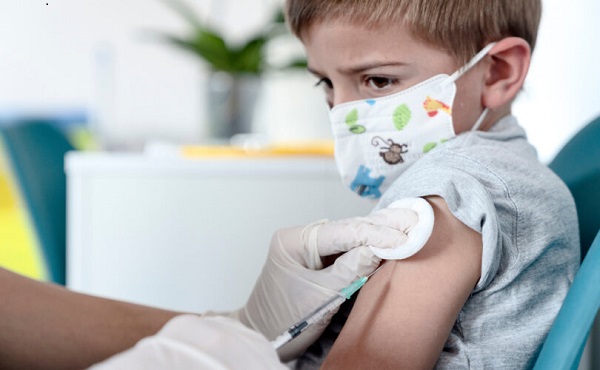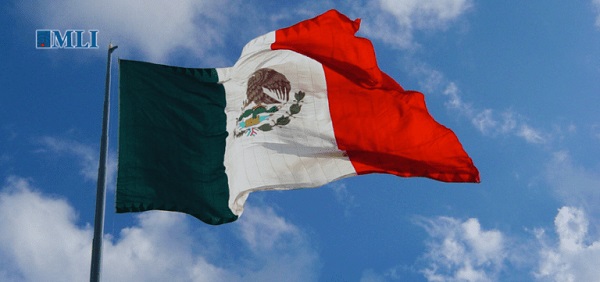Alberta
Premier Kenney escalates Alberta’s response to Amnesty International with a new scathing barrage
From the Province of Alberta
Amnesty International: Statement from Premier Kenney
Premier Jason Kenney has sent the following letter to Alex Neve, secretary general of Amnesty International Canada:
“Dear Mr. Neve,
“Before responding to your open letter, titled “Human rights concerns regarding the Government of Alberta’s “Fight Back Strategy,” I would like to offer a note of sympathy. Honestly, it can’t be easy being the long-time head of Amnesty International Canada (AI), stuck in annoyingly free and peaceful Canada, having to work yourself up into high dudgeon to denounce a democratically-elected government peacefully standing up for its citizens.
“On the other hand, your insistence that the burning human rights threat in Canada right now is – to use your description – the “establishment of an energy ‘war room’ devoted to defending the oil and gas industry in Alberta and a public inquiry into the foreign funding of groups who oppose or criticize energy developments in the province” can hardly pass unchallenged. Relentless misinformed attacks against our oil and gas industry have cost us thousands of jobs and hurt families from every region of our province. The cost in investment and jobs has been incalculable. Our government won the largest democratic mandate in Alberta history in part on a promise to stand up to those attacks. I will not apologize for keeping that promise.
“Again, I understand it must be hard for you. When you look around the world and see the rise of authoritarian governments, civil war, human trafficking, genocide, and other gross violations of human rights, it must be a tall order to find something, anything to denounce here in our gelid but placid Dominion.
“You see your colleagues in the Kingdom of Saudi Arabia standing up to a government that “severely restrict[s] the rights to freedom of expression, association and assembly” and “extrajudicially executed” and dismembered a prominent journalist (those are all quotes from the AI country profile).
“You see your counterparts in the Bolivarian Republic of Venezuela facing a regime under which “hundreds of people were arbitrarily detained” amid “reports of torture and other ill-treatment, including sexual violence against demonstrators” and “the Attorney General was dismissed under irregular circumstances.” (That last part rings a bell – you might want to look into it.)
“You see your confrères in Russia fighting “further restrictions to the rights to freedom of expression, association and peaceful assembly,” “harassment and persecution” of religious minorities, “torture,” and a regime that systematically sabotages Western democracy, while your greatest challenge is … a provincial government speaking out in defence of its economy and in defiance of an active campaign against it.
“This is a double pity. It can’t be much fun for you and, more seriously, it undermines the credibility of what was once, and still could be, an important organization. As I have written before, when I joined Amnesty International as a teenager it was to defend the rights of political dissidents like Andrei Sakharov and to oppose totalitarian regimes like those currently in charge in most major oil-producing countries. I am disappointed to see that you continue to squander the moral authority accrued in those brave campaigns on smearing the most responsible and rights respecting major oil-producer in the world.
“There was a reason I singled Russia, Saudi Arabia, and Venezuela for comparison. They – along with Iran – would be major beneficiaries of a moratorium on Canadian oil production. No one will cheer your letter harder than Vladimir Putin, the Houses of Saud and Al Thani, the caudillo Nicolás Maduro, and Ayatollah Ali Khamenei. OPEC’s oleo-gopolists will be chuckling from their gilded palaces at your naïveté.
“Demand for oil is not going away soon. Every credible estimate shows several more decades of strong oil demand, and the world is going to get it from somewhere. Shutting down Alberta’s oil industry means more global supply – including much of the oil imported to Canada’s east coast – will be sourced from the world’s worst human rights abusers, instead of from the most ethical and best-regulated industry in one of the freest countries in the world. The net result of the campaign to landlock Canada’s oil and gas reserves, in which (to use an old but apt term) you are playing the role of useful idiot, will be to take money out of the pockets of Alberta workers to line the silk pockets of men who commit enough human rights abuses before breakfast to keep Amnesty International busy for a year. If you are truly concerned about human rights, look at where the world’s oil will come from if we don’t export it from Canada.
“Although your letter is repetitive and scattershot in its criticisms, I will respond to your main points in turn. Not because you raise serious issues, but because your hyperbolic bill of particulars is all-too typical of critics of Alberta’s oil and gas industry. It demands a rejoinder in the interest not just of our province, but of accuracy. Ironically, your letter is a perfect illustration of just why Alberta needs a way to respond to common misconceptions – and the decade-long campaign to discredit the Canadian oil and gas industry – with facts.
“For example, you allege that our plan to correct inaccuracies about Alberta’s oil and gas industry will “have particularly serious implications for advancing reconciliation with Indigenous peoples in the province.” What out-of-touch balderdash. In fact, I received your letter while I was meeting with the leaders of northern Alberta First Nations, whose people have enjoyed prosperity precisely because of their partnerships with Alberta oilsands producers and who strongly support our government’s efforts to respond to the campaign to landlock Canadian energy.
“Shortly after I was sworn in as Premier, I hosted the first Government-First Nations gathering in years, which was attended by 46 of the 48 Alberta First Nations Chiefs. The overwhelming – I would say, unanimous – consensus was that Alberta’s First Nations want to be partners in the prosperity that flows from the responsible development of our shared natural resources. They have seen first-hand that Alberta has Canada’s highest level of Indigenous employment because of our energy sector, and especially our oilsands. And they have had enough of foreign and urban do-gooders telling them how they should steward their traditional lands – a phenomenon BC MLA and former chief councillor of the Haisla Nation, Ellis Ross, and others acidly refer to as “eco-colonialism.”
“That is why we proposed unprecedented steps to partner with First Nations in defense of our shared economic interests through the Alberta Indigenous Opportunities Corporation (AIOC). This $1 billion commitment, backed with the full faith and credit of the Alberta government, will encourage First Nations participation in resource development. The AIOC will be a first-of-its kind policy, a creative solution to the challenges that many resource-rich but capital-poor First Nations face in owning or co-owning major oil and gas projects. We have heard from dozens of First Nations inside and outside Alberta who are eager to access this support, and the federal government has expressed an interest in becoming a financing partner.
“We have also launched a $10 million Indigenous Litigation Fund to help First Nations defend their own economic development rights in court when they are threatened by government actions like the West Coast tanker ban or the cancellation of the Northern Gateway pipeline – both decisions taken by the federal government without consultation and over the strong objection of many B.C. and Alberta First Nations.
“You may be surprised to hear that I agree that “Reconciliation with Indigenous peoples is a Legal and Moral Imperative.” I use the same language myself, calling the need to partner with our First Nations, the first custodians of our rich trove of resources, a “moral imperative.” We know that there are still too many Indigenous people in Canada who do not enjoy the prosperity that natural resources development has brought. In that spirit, I hope that you will join me in cheering the fact that there are at least four consortia of First Nations bidding for a major stake in the Trans Mountain pipeline. Projects like this represent real economic opportunity for Canada and our First Nations and are a step towards meaningful reconciliation of which we should all be proud.
“Separately, I appreciate your concern for vulnerable individuals who you worry will be harmed by government advocacy. I am pleased be able to reassure you that you fundamentally misunderstand the context and purpose of the “fight back” strategy. In fact, I am sure you’ll be relieved to know that you have it exactly backwards: our energy industry and the jobs across Alberta and Canada that depend on it are not threatened by isolated or vulnerable individuals but by well-funded family foundations like the Rockefeller Brothers Fund, the David and Lucile Packard Foundation, and hedge fund billionaire Tom Steyer, whose fortune was made in part from coal mines.
“Those would be the Rockefellers whose fortune was made by the Standard Oil monopoly and the Packards of Hewlett-Packard fame, whose foundation has assets over US$7.5 billion and who recently rewarded Tzeporah Berman, a former advisor with the previous government, with a US$2 million prize for her anti-oilsands activism. When I joined Amnesty International, it was because you fought for prisoners of conscience in dictatorial regimes. Today, you are fighting on the side of foreign billionaires trying to shut down an industry on which hundreds of thousands of hard-working men and women depend. Forgive me if I express a concern of my own: that Amnesty International may have drifted somewhat from its core mission.
“As for your concerns about freedom of expression and association, those rights are not threatened by our government telling the truth about our energy industry. Our intent is to counter misinformation, exaggerations, and outdated information with facts and evidence. You acknowledge this when you say that the “narrative that has accompanied the launch of the ‘war room’ focuses on ‘uncovering the truth’ and ‘tackling misinformation.’” That’s exactly right.
“There is a great story to tell about Alberta’s oil and gas sector. It’s a story of innovation, of world-leading research and development, of decreasing emissions, of cleaner technology. Most importantly, it is the story of an industry that has been an engine of social progress for people of all education levels from across the country, including women, new Canadians, and Indigenous peoples. How you can twist this good news story into a threat to human rights confounds comprehension.
“Speaking of exaggerations, your claim that “by any measure, oilsands development in Alberta is a major source of global carbon emissions” is exactly the sort of distortion that makes this project necessary. Canada is responsible for 1.6% of global GHG emissions and the oilsands account for 8% of that, or about one tenth of one percent of global emissions. Your claim would be wildly inaccurate even if the oilsands were ten times their current size. This is not to diminish the importance of Alberta showing leadership in GHG reductions. Our government is committed to lowering emissions, including by putting a price on large emitters and funding technology that will lower emissions both here and around the world.
“The second part of that plan is particularly important. While we will reduce emissions here in Alberta, our greatest contribution to the global challenge of climate change will be come from developing and exporting new technology and our cleaner natural resources, especially natural gas, to displace the coal-fired electricity in the world’s largest and dirtiest emitters. The reduction in global emissions we can achieve by exporting our know-how and resources to the developing world dwarf any reductions the anti-oilsands campaign could ever hope to achieve. Contrary to your letter, we may not be a big part of the problem, but we are determined to be a big part of the solution.
“As for the rest of your accusations and insinuations, they only make sense if you deny that there is a well-funded campaign against Alberta’s natural resource industry and a concomitant need to rebut it. This would be the campaign that you dismiss as “vague conspiracy theories about the hidden goals of US based foundations.” I assure that if their goals are hidden it is because they have worked hard to keep them that way. One of the original strategy documents of the Tar Sands Campaign, from 2008, actually stressed that “the [Tar Sands Campaign] Coordination Centre shall remain invisible to the outside” (their emphasis). Unfortunately, the Tar Sands campaign is real and anything but vague. Under the heading “Tar Sands Campaign Strategy 2.1,” that same document lays out step-by-step, in precise detail, the “tar sands termination agenda” to “embarrass Canada” and “delegitimize” the oilsands.
“As if that weren’t enough, the North American energy industry is also being targeted by a sophisticated social media and cyber campaign funded and coordinated by Putin’s Russian government. A 2018 report from the U.S. House Committee on Science, Space and Technology concluded that “Russia exploited American social media as part of its concerted effort … to influence domestic energy policy” and specifically “targeted pipelines, fossil fuels [and] climate change.” It’s a coalition of the bleeding-hearted and the bloody-minded.
“This is the threat Alberta has faced for more than a decade. It is an existential threat to our economy backed by American billionaires and coordinated through dozens of foreign and Canadian environmental organizations and advocacy groups. Their success can be measured in tens of billions of dollars in lost investment and thousands of lost jobs. That is why in the recent election we told Albertans that “We will fight back against the foreign funded special interests who are trying to landlock our energy.” Having received an historic popular majority, we intend to keep our word.
“Albertans deserve a government that will not roll over in the face of foreign-funded special interests. Our commitment to stand up for Alberta is the furthest thing from a threat to human rights; it is a pledge to meet myth with fact and misinformation with evidence. If Amnesty International Canada really cannot see the difference, then I am sorry – the organization I joined as a teenager had a clearer sense of purpose and a better moral compass.”
Alberta
On gender, Alberta is following the science

Despite falling into disrepute in recent years, “follow the science” remains our best shot at getting at the truth of the physical sciences.
But science, if we are to place our trust in it, must be properly defined and understood; it is at its essence an ever-changing process, a relentless pursuit of truth that is never “settled,” and one that is unafraid to discard old hypotheses in the face of new evidence.
And it is in this light—in the unforgiving glare of honest science—that Alberta Premier Danielle Smith’s three new legislative initiatives around gender policy are properly understood, notwithstanding the opprobrium they’ve attracted from critics.
Bill 26, the Health Statutes Amendment Act, proposes to prohibit the prescription of puberty blockers and cross-gender hormones for the treatment of gender dysphoria to youth aged 15 and under. It would allow minors aged 16 and 17 to begin puberty blockers and hormone therapies for gender “reassignment” and “affirmation” purposes only with parental, physician, and psychologist approval. The bill also prohibits health professionals from performing sex reassignment surgeries on minors.
Bill 27, the Education Amendment Act, seeks to enshrine parents’ rights to be notified if their kids change their names/pronouns at school, and it gives parents the right to “opt in” to what sort of gender and sex education their kids are exposed to in school.
And Bill 29, the Fairness and Safety in Sports Act, is designed to protect females in sports by ensuring that women and girls can compete in biological female-only divisions, while supporting the formation of co-ed opportunities to support transgender athletes.
Each of these initiatives is entirely reasonable, given what we know of the science underpinning “gender care,” and of the undeniable advantages that a male physique confers upon biological males competing in sports.
The notion that the trifecta of puberty blockers, cross-gender hormones, and revisionist surgery is a pathway to good health was a hypothesis initially devised by Dutch researchers, who were looking to ease the discomfort of transgender adults struggling with incongruence between their physical appearance and their gender identities. As a hypothesis, it was perhaps reasonable.
But as the UK’s Cass Review exposed in withering detail last spring, its premises were wholly unsupported by evidence, and its implementation has caused grievous harm for youth. As Finnish psychiatrist Riittakerttu Kaltiala, one of the architects of that country’s gender program, put it last year, “Gender affirming care is dangerous. I know, because I helped pioneer it.”
It’s no accident, then, that numerous European jurisdictions have pulled back from the “gender affirming care” pathway for youth, such as Sweden, Finland, Belgium, the Netherlands, and the United Kingdom.
It makes perfect sense that Canadians should be cautious as well, and that parents should be apprised if their children are being exposed to these theories at school and informed if their kids are caught up in their premises.
Yet the Canadian medical establishment has remained curiously intransigent on this issue, continuing to insist that the drug-and-surgery-based gender-affirming care model is rooted in evidence.
Premier Smith was asked by a reporter last month whether decisions on these matters aren’t best left to discussions between doctors and their patients; to which she replied:
“I would say doctors aren’t always right.”
Which is rather an understatement, as anyone familiar with the opioid drug crisis can attest, or as anyone acquainted with the darker corners of medical history knows: the frontal lobotomy saga, the thalidomide catastrophe, and the “recovered memories of sexual abuse” scandal are just a few examples of where doctors didn’t “get it right.”
As physicians, we advocate strongly for self-regulation and for the principle that medical decisions are private matters between physicians and patients. But self-regulation isn’t infallible, and when it fails it can be very much in the interests of the public—and especially of patients—for others to intervene, whether they be journalists, lawyers, or political leaders.
The trans discussion shouldn’t be a partisan issue, although it certainly has become one in Canada. It’s worth noting that Britain’s freshly elected Labour Party chose to carry on with the cautious approach adopted by the preceding administration in light of the Cass Review.
Premier Smith’s new polices are eminently sensible and in line with the stance taken by our European colleagues. None of her initiatives are “anti-trans.” Instead, they are pro-child, pro-women, and pro-athlete, and it’s difficult to see how anyone can quibble with that.
Dr. J. Edward Les, MD, is a pediatrician in Calgary, senior fellow at the Aristotle Foundation for Public Policy, and co-author of Teenagers, Children, and Gender Transition Policy: A Comparison of Transgender Medical Policy for Minors in Canada, the United States, and Europe.
Alberta
Alberta mother accuses health agency of trying to vaccinate son against her wishes

From LifeSiteNews
Alberta Health Services has been accused of attempting to vaccinate a child in school against his parent’s wishes.
On November 6, Alberta Health Services staffers visited Edmonton Hardisty School where they reportedly attempted to vaccinate a grade 6 student despite his parents signing a form stating that they did not wish for him to receive the vaccines.
“It is clear they do not prioritize parental rights, and in not doing so, they traumatize students,” the boy’s mother Kerri Findling told the Counter Signal.
During the school visit, AHS planned to vaccinate sixth graders with the HPV and hepatitis B vaccines. Notably, both HPV and hepatitis B are vaccines given to prevent diseases normally transmitted sexually.
Among the chief concerns about the HPV vaccine has been the high number of adverse reactions reported after taking it, including a case where a 16 year-old Australian girl was made infertile due to the vaccine.
Additionally, in 2008, the U.S. Food and Drug Administration received reports of 28 deaths associated with the HPV vaccine. Among the 6,723 adverse reactions reported that year, 142 were deemed life-threatening and 1,061 were considered serious.
Children whose parents had written “refused” on their forms were supposed to return to the classroom when the rest of the class was called into the vaccination area.
However, in this case, Findling alleged that AHS staffers told her son to proceed to the vaccination area, despite seeing that she had written “refused” on his form.
When the boy asked if he could return to the classroom, as he was certain his parents did not intend for him to receive the shots, the staff reportedly said “no.” However, he chose to return to the classroom anyway.
Shortly after, he was called into the office and taken back to the vaccination area. Findling said that her son then left the school building and braved the sub-zero temperatures to call his parents.
Following his parents’ arrival at the school, AHS claimed the incident was a misunderstanding due to a “new hire,” attesting that the mistake would have been caught before their son was vaccinated.
“If a student leaves the vaccination center without receiving the vaccine, it should be up to the parents to get the vaccine at a different time, if they so desire, not the school to enforce vaccination on behalf of AHS,” Findling declared.
Findling’s story comes just a few months after Alberta Premier Danielle Smith promised a new Bill of Rights affirming “God-given” parental authority over children.
A draft version of a forthcoming Alberta Bill of Rights provided to LifeSiteNews includes a provision beefing up parental rights, declaring the “freedom of parents to make informed decisions concerning the health, education, welfare and upbringing of their children.”
-

 Brownstone Institute3 hours ago
Brownstone Institute3 hours agoThe Most Devastating Report So Far
-

 Economy15 hours ago
Economy15 hours agoCOP 29 leaders demand over a $1 trillion a year in climate reparations from ‘wealthy’ nations. They don’t deserve a nickel.
-

 Alberta13 hours ago
Alberta13 hours agoOn gender, Alberta is following the science
-

 Energy14 hours ago
Energy14 hours agoOttawa’s proposed emission cap lacks any solid scientific or economic rationale
-

 Bruce Dowbiggin2 hours ago
Bruce Dowbiggin2 hours agoCHL Vs NCAA: Finally Some Sanity For Hockey Families
-

 Brownstone Institute1 day ago
Brownstone Institute1 day agoFirst Amendment Blues
-

 Crime2 days ago
Crime2 days agoMexican cartels are a direct threat to Canada’s public safety, and the future of North American trade
-

 Business2 days ago
Business2 days agoDEI gone?: GOP lawmakers prep to clean house in federal government




